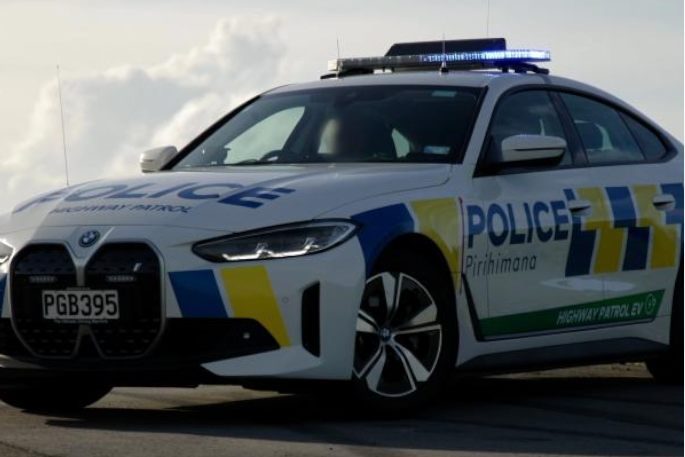New Zealand Police is rolling out a new electric vehicle to be trialled for operational needs over the next six months.
The BMW i4 has been selected for the initial trial, successfully meeting most performance requirements for an operational vehicle while fulfilling carbon reduction targets and fitting within existing project funding.
"Road Policing has been identified as a suitable trial for operational use and the trial is initially limited to five vehicles," says a police spokesperson.
"If the trial is successful, it will create an opportunity for Police to consider future options EVs to transition into suitable areas of the fleet.
"This trial is part of a wider fleet electrification project, introducing 45 electric vehicles into the New Zealand Police Fleet and the associated charging infrastructure. The expectation is this will reduce carbon emissions by around 176.1 tonnes annually.
"This trial aligns New Zealand with global Policing innovations and modernises and transforms our fleet while seeking to meet our carbon reduction targets.
"Work is also underway to identify practical ways to reduce fleet carbon emissions by analysing what the fleet comprises, how we use our vehicles and alternative means of travel.
In unveiling the trial vehicle in Auckland today, Police Commissioner Andrew Coster said the vehicle represented an important commitment to reducing carbon emissions.
'Police vehicles are fundamental to our ability to serve the public and provide safer communities across New Zealand. We are proud to take these new steps seeking to reduce transport-related emissions while keeping New Zealanders safe.”
This project is supported with $1.7 million in co-funding from the State Sector Decarbonisation Fund, administered by EECA (the Energy Efficiency and Conservation Authority).
The first vehicle will be trialled in the Waikato, and then deployed to Counties Manukau, Central Districts, Christchurch, and Dunedin. The spread of geographical locations will allow us to test a range of variables (such as topography, weather, driving conditions etc).



2 comments
AH, so
Posted on 02-06-2023 19:54 | By The Caveman
now keep running and the coppers will run out of juice !!
@The Caveman
Posted on 03-06-2023 13:15 | By morepork
They could just as easily run out of petrol... The difference is that it takes 2 hours to recharge the EV... I don't honestly think that fuelling will be a problem and they'll stagger charging of vehicles. Good to see we are doing the right thing Eco-wise, even though it will make no detectable difference on the global scale.
Leave a Comment
You must be logged in to make a comment.